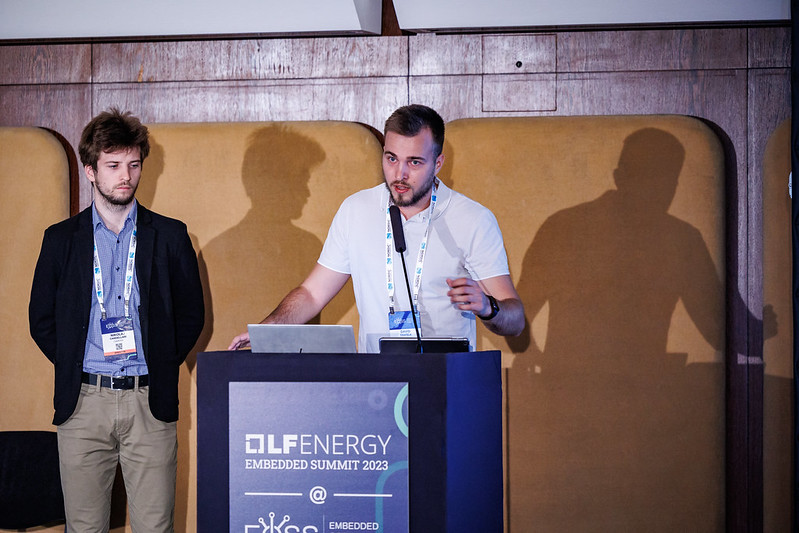LF Energy Embedded Summit Recap: Advancing Renewable Energy Integration: Project InterSTORE’s Open Source Interoperability Toolkit with David Trafela of Sunesis & Nikolaj Candellari of CyberGrid
LF Energy Embedded Summit 2023 hosted a session titled “Open Source Interoperability Toolkit for Integration of Distributed Energy Storage and Other Flexibility Resources: Project InterSTORE” (video follows below). The dynamic duo of David Trafela from Sunesis and Nikolaj Candellari from CyberGrid presented a groundbreaking project aimed at revolutionizing the seamless integration of distributed energy resources and flexibility tools. Key points from the presentation follow.
The Challenge of Diverse Protocols
One of the primary challenges in the energy domain is the coexistence of multiple communication protocols for distributed energy resources. While this diversity offers integration possibilities, it also presents interoperability hurdles between different protocols. With the energy landscape rapidly evolving, there is also a growing demand for efficient and real-time data exchange between various energy projects. To cater to this demand, the need for innovative solutions has become more pressing.
Introducing Project InterSTORE
Project InterSTORE comes to the rescue as an open source interoperability toolkit. It is an ambitious initiative designed to tackle the challenges posed by diverse protocols and data exchange requirements in the energy sector.
Three Software Implementation Levels
InterSTORE will develop three open source software implementations. The first is the Legacy Protocol Converter, dedicated to existing communication protocols. The second is the Client-Server Protocol, tailored for newer protocols to be integrated into the grid. The third is the Protocol Certification, ensuring seamless integration between the new protocols.
IEEE 2030.5 and NATS Messaging System
InterSTORE adopts the IEEE 2030.5 data model and the NATS messaging system for the implementation of its open source toolkit. IEEE 2030.5 is chosen for its compatibility with distributed energy resources, electric vehicles, and customer Energy Management Systems. Meanwhile, the NATS messaging system offers lightweight, fast, and asynchronous communication, which is essential for real-time systems.
Two Pillars of Support
The project structure is built on two fundamental pillars. The first focuses on the development of open source software and the integration of data into open data spaces. The second pillar aims at practical implementations connected to existing infrastructure, building new Energy Management Systems, and gaining a competitive edge in the market.
Looking Ahead
Project InterSTORE is a long-term endeavor, with a budget of 4.3 million euros, funded through the Horizon Europe project. The team is dedicated to delivering the first version by March 2024, with plans to grow an open source community to ensure continuous development and innovation.
